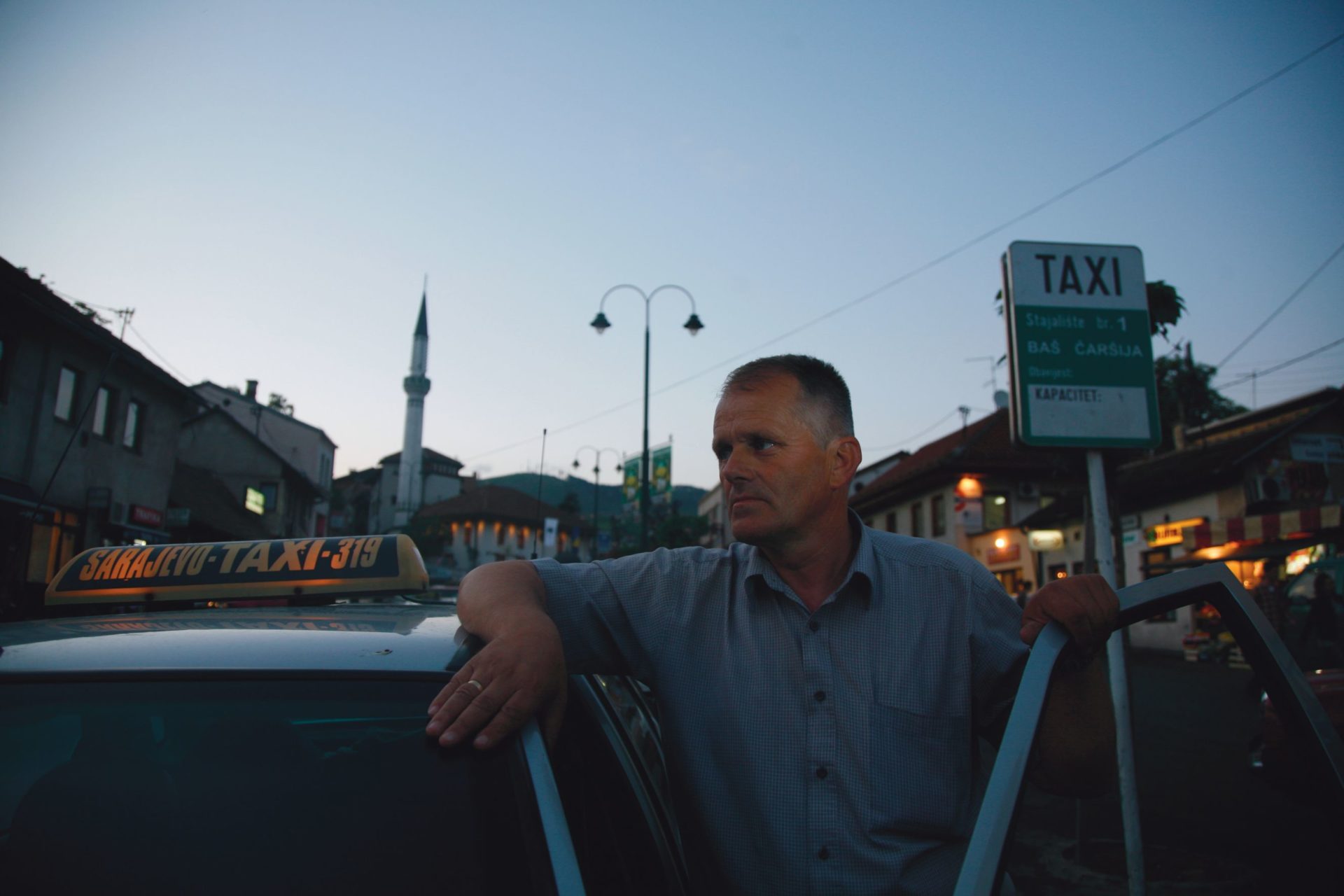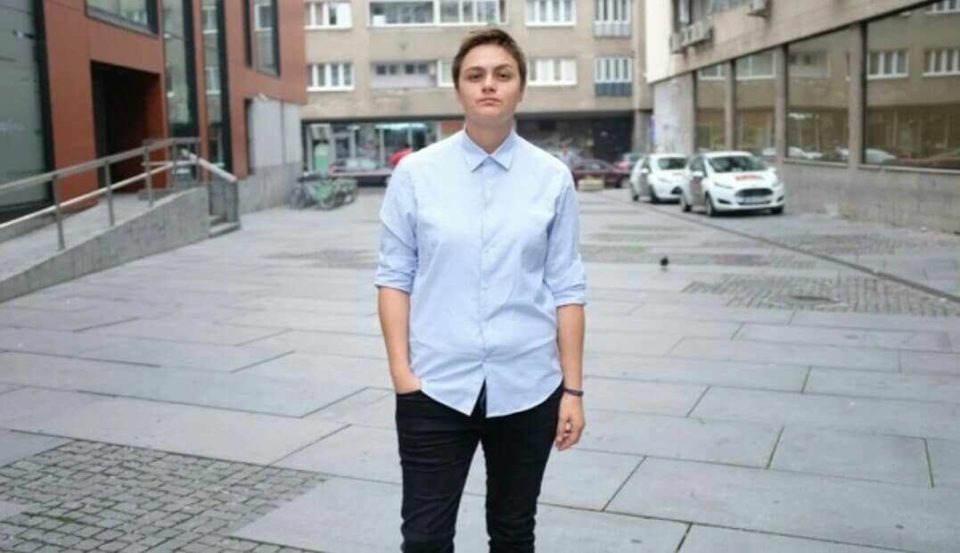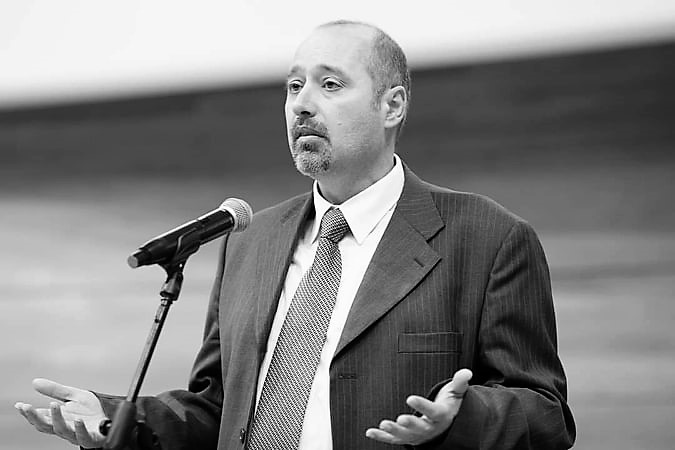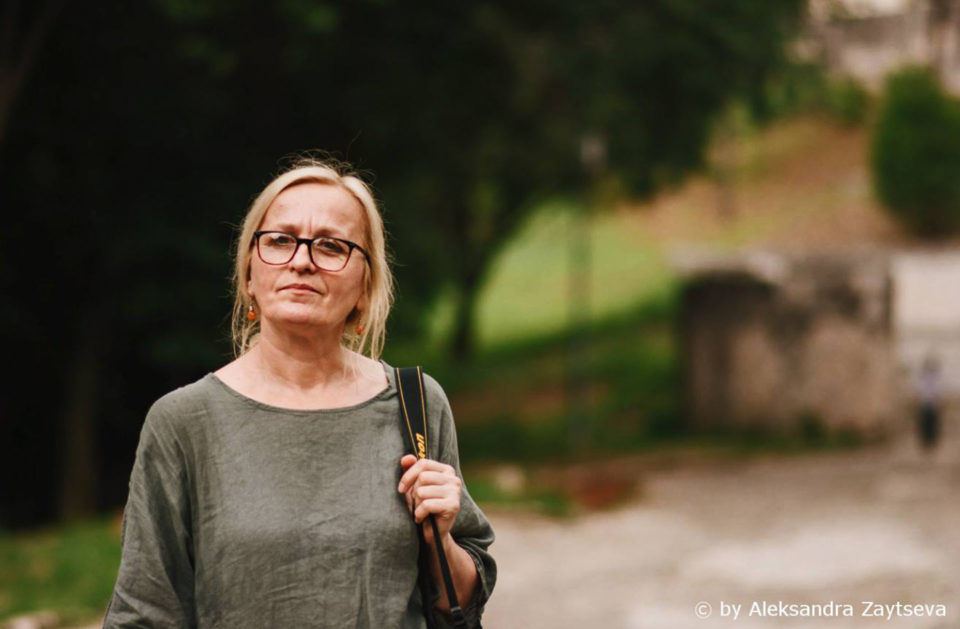
Heroes are all around us, often unnoticed, unrecognized and unappreciated. At a time when internet portals, newspaper columns and social networks are bombarded with daily political chaos, heroes are changing the harsh reality with small but determined steps.
Activists, peacekeepers, students, taxi drivers, and farmers show by their example that the future, with a little effort, can be brighter, and that dealing with the past is the moral obligation of each of us.
The heroes among us break down ethnic and national barriers, fight for education without segregation, combat nationalism and chauvinism, and dream of a country without hate speech that is equally good for everyone.
Among them is Ajna Jusić, president of the Forgotten Children of War association, who describes herself as a woman, daughter, friend, activist, feminist, fighter and optimist. She knows how strong one’s heart and soul must be in order to be able to resist hatred towards those who have done one injustice.

Ajna was born in 1993 as the first baby in the Medica Zenica association. Her place of birth was determined by the fate of her mother, who survived rape during the war in Bosnia and Herzegovina (BiH). She found out the truth about her birth by accident, as a high school student. She overcame the trauma this knowledge caused thanks to the selfless love of her mother and stepfather with whom she grew up. All this has turned her into a brave person who is ready to speak publicly about the most sensitive topics. She continues the fight for her own rights and the rights of children “born because of the war” through the Medica Association. Its mission is for the system to finally recognize and accept children born because of war.
“The very fact that I was born as a result of the worst crime – rape – made me quite eager to defend the concept of the family for the rest of my life. My mother and stepfather gave every ounce of their strength just to protect me from a society that is still not aware of how and in what way it discriminates and interferes with the normal course of life,” says Ajna.
It is estimated that between 20,000 and 50,000 women and girls were raped during the war in BiH. After more than 20 years, no one is asking what happened to children born because of these crimes or out of relations with foreign officials who returned to their homes after the war without accepting these children as theirs. Ajna and friends, united together in the Forgotten Children of War association, are trying to remedy the issues revolving around the forgotten children of the war.
Ajna Jusić is an example of courage and of resistance to a system that to this day does not recognize children of war as a special category in Bosnian society. These children have so far experienced all possible violations of children’s rights. She believes that young people need to understand how important it is that human differences, starting with religion, culture and history, should not be perceived as a force that separates, but a source of richness, from which to learn about community.
“For me, the greatest success is the fact that society has started to get acquainted with this topic. That simply, when we say ‘children born because of the war’ they know what we are talking about. When people offer support, it is the most important thing. We are taking small steps but, I believe, towards great success,” concludes Ajna.
A Cry against Segregation
A group of teenagers in Jajce achieved a great success when they opposed the decision made by the Central Bosnia Canton Assembly in July 2016 to establish a new school in the city under the “two schools under one roof” principle.
These young people realized that it was a matter of segregation and started protesting against this decision. The authorities did not take them seriously, but their persistence and courage, together with public pressure, resulted in the reversal of that decision.
These young people once again pointed to the dysfunctionality of the education system in BiH, which is a direct reflection of the post-war division in the country. Schools in the Republika Srpska are predominantly monoethnic, while in the Federation of Bosnia and Herzegovina, the phenomenon of “two schools under one roof” is present in as many as 56 schools. They were created as a temporary solution to encourage the return of displaced citizens to their homes and as a systemic protection of their rights at the cultural and linguistic level. However, schools work using that system throughout the Federation even today.
Instead of separating school systems into two monoethnic curricula, students from Jajce sought to continue to be able to attend all subjects together with the exception of so-called ‘national subjects’ such as language, religion, geography and history. And they succeeded in that.
They knew that a compromise to accept some separate curricula is not an ideal solution, but it is better than complete segregation. Ignored by politicians and the local community, young activists from Jajce took matters into their own hands, spoke out, and made a difference. Now, aware of their strength and the power of their voice, they serve as a reminder of the power of youth to direct BiH towards the path of reconciliation.
Peacemaking ’til the Last Breath
The peacemaker and humanist Goran Bubalo supported the young heroes from Jajce, as well as many others. He worked selflessly at the reconciliation processes to his last breath. Bubalo, director of the Network For Peace Building, passed away on June 9, 2020, at the age of 49, in Sarajevo, after a short and severe illness. National borders never limited his efforts to achieve peace. In fact, quite the contrary, he was a true cosmopolitan in his acceptance of all people, never standing for any kind of discrimination.

“Unfortunately, politicians are the ones who mostly emphasize differences among people via the repeated use of hate speech to separate us, pointing to the most common fictional differences, and targeting other religious groups and nations, as well as migrants and refugees. They spread claims of our nation’s supremacy over theirs, sowing poison against everyone they believe is different,” said Bubalo in an interview with Al Jazeera.
Bubalo saw and treated people as entirely equal. He never looked through the prism of nationality or ethnicity in his work, actions or private life. Everything he did was aimed at helping people of all faiths, nations, races, and generations.
Štefica Galić, editor of the Tacno.net portal, a journalist, activist and, above all, human rights activist, from Ljubuški, has never cared about one’s nation, religion or age. During the war in BiH, she and her husband Neđo saved Bosniak civilians from the Croatian army by falsifying their documents so that they would not be taken to the Heliodrom, Dretelj or Gabela camps.
Twenty years later, she addresses topics such as freedom of speech and hate speech recognition, but her engaged activism, which began during the war, has often not been welcomed by those around her. She faces numerous threats almost daily, either because of her activism or because of her editorial policy.
“I lost everything of material value and I had to leave the city where I lived. A lot of my friends, and even parts of my family, gave up on me. For them, I was and still am a traitor to ‘my people’, a communist whore… For others, I am a heroine, a brave woman. I’m a normal person doing what I believe to be right,” says Štefica, who had to move from Ljubuški to Mostar.
In 2018, she received the Johann Philipp Palm Award for Freedom of Speech in Germany, which is an acknowledgement of her many years of activism. In a society full of stereotypes, it is difficult to fight lies, corruption, and alienation, but Galić continues on.

“I believe in what I do, I believe we can do better because we are not how they present us to the world and to themselves. I do not want to believe in what the worst of society imposes on us, I believe what I see and in my own judgment, in the good as such, in good people and in good energy,” she says.
Different War Heroes
There have always been good people, even in the most difficult times. Sarajevo taxi driver Hasan Jusović is rightly nicknamed Duša (‘Sweetheart’). At the beginning of the war, he saved Aco Nenadić, a soldier from the Yugoslav People’s Army (YPA).
On May 3, 1992, in what was then Dobrovoljačka Street in Sarajevo, members of the Territorial Defense forces intercepted a YPA column leaving Sarajevo based on a withdrawal agreement. The column started from the barracks on Bistrik, and the plan was for the YPA soldiers to go to Lukavica, today East Sarajevo. The column with YPA vehicles and soldiers was cut off and stopped and 215 soldiers were captured. Among them was nineteen-year-old soldier Aco Nenadić.
As he lay on the asphalt, head down, someone prodded him with their foot. Aco turned and saw a familiar face. It was Hasan Jusović. When Hasan saw Aco captured with the other soldiers in the column, he realized that he had to save him.
“He won’t survive, I thought to myself. The war has already started in the country, in Sarajevo, people are dying. I just thought about how to save him, so he could go alive to his parents,” says Hasan.
While the detainees were being taken to the Sarajevo FIS department store, Hasan remained nearby.
“When they were placed there, I asked the commander to let Aco go with me. The commander then asked Aco if he would stay or go with me, and he decided to go with me,” says Hasan, who then took Aco to his house in Sedrenik.
Aco lived in that house for a month, after which Hasan and one of his neighbors managed to take him to Špicasta stijena, a place known as one of the most dangerous sniper strongholds during the three-year siege of Sarajevo. Aco managed to cross over to the side controlled by the Bosnian Serb Army.
Duša and Aco met again in 2008. They are still in contact today.
Daut Tihić, a former soldier of the Army of the Republic of Bosnia and Herzegovina, and Dane Vasić, a former soldier of the Army of the Republika Srpska, are also in contact. The two met on the front line in Skelani near Srebrenica in the fall of 1992. Daut shot Dane and for 14 years believed he had killed him, until they met in completely different circumstances.
For the first time since the course of the war, the two met in a tavern. Daut immediately recognized the man he thought he had killed. The meeting in the tavern changed them from war enemies to best friends.
In 1994, Daut went to live in Sweden, from where he returned after a few years, first to Breza near Sarajevo, and then to his native Skelane on the Drina. He opened a cow farm, sells milk, and is engaged in agriculture.
From the meeting in the tavern, they began to see each other more often, exchanging war memories but also today’s experiences – one with agriculture, the other with growing herbs. The idea of the two of them cooperating was easily reached.
Dane lives on the other bank of the Drina in Bajina Bašta in Serbia. He sells herbs, forest fruits and berries, and has his own refrigerator and a chain of souvenir shops. The system has prevented them from setting up a joint farm, but the two of them are not giving up on the plan. Dane says that he and Daut are determined to cooperate and he is sure that they will succeed in that.
They did not want the war, like so many other ordinary heroes who fight for cooperation, coexistence, tolerance, and a better life for all.
This article was initially published within the first edition of MIR Magazine. MIR, which means ‘peace’ in Bosnian is an annual publication and platform for young inventive people developed by the Post-Conflict Research Center and Balkan Diskurs. It is dedicated to individuals and organizations that left us a legacy of strongly built foundations to continue our fight for peace and justice.






